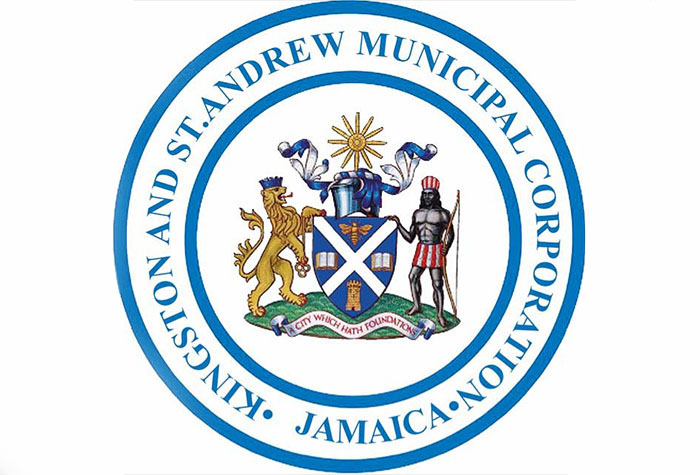
Damning 63-page IG investigation report on the matter tabled in parliament
Durrant Pate/ Contributor

Estatebridge Holdings Limited, a company associated with Prime Minister Dr Andrew Holness, has been found to have breached development and building laws regarding a residential development located at 2 Weycliffe Close, Beverly Hills, Kingston 6.
The Integrity Commission (IG), in a damning 63-page report tabled in parliament last evening, was highly critical of the irregularities found in the development and building approval processes in this case. Its Director of Investigation (D.I.), Kevon A. Stephenson, stated, “The investigation found that the development was being constructed contrary to the terms of the planning approval and building permit issued by the Kingston and St. Andrew Municipal Corporation (KSAMC) and the Building Act.“
While planning approval and the building permit were issued for the construction of four semi-detached townhouses in two (2)-story buildings consisting of two-bedroom units, at the commencement of the investigation, the erected development consisted of four four-bedroom units. Stephenson concludes, “The breaches were deliberate, and the directors of Estatebridge are liable.

The DI also concludes that KSAMC failed to effectively discharge their responsibilities to ensure compliance with the terms of the approvals granted. Recommendations are made that aim to improve accountability and prevent reoccurrence of the issues identified.”
Investigation initiated in July this year
The investigation was initiated following allegations received on July 10, 2024, “that Dr. Holness is the owner of property on which construction is being carried out, contrary to the terms of the planning approval and building permit granted by the KSAMC. Mr. Holness often requests the service of his architect to draw a blueprint that will be sent to KSAMC. However, a second blueprint will be drawn that will be used for the actual construction.”
On July 11, 2024, the DI undertook an unannounced visit to KSAMC to enquire as to whether Holness had directly or indirectly applied for a building permit(s) for a development(s) in Beverly Hills/Cherry Gardens. The DI’s enquiries revealed that the only development in this area that Dr Holness was in some way connected with is a residential development located at 2 Weycliffe Close, Beverly Hills, Kingston 6, and that this was owned by Estatebridge.

Stephenson, in his report, “established that Dr Holness is connected to the development at 2 Weycliffe Close by virtue of Admat Incorporated, of which Dr Holness and his sons were shareholders and directors, having initially owned the land that was developed, and his roles as sole director, shareholder, and beneficial owner of Imperium, which had shares in Estatebridge at the time that the planning and/or building permit was issued to them on July 12, 2021. Whilst the DI notes that Imperium surrendered its shares in Estatebridge on October 20, 2022.”
The DI concludes that “the requisite planning approval and building permit required for the construction of a development, consisting of four (2) bedroom units, located at 2 Weycliffe Close, Beverly Hills, Kingston 6, were properly issued by the KSAMC to Estatebridge on July 12, 2021.
Violating terms of building permit
The DI finds that the terms and conditions of the building permit, which was issued by the KSAMC for the development, were breached. The DI’s conclusion is premised on the fact that at the time of the DI’s first inspection, the referenced development consisted of four (4) bedroom townhouses instead of four two (2) bedroom townhouses, as approved by the KSAMC.
The DI found that, in failing to comply with the terms and conditions of the building permit, section 17 (1) of the Building Act was breached. Stephenson concludes that the inconsistent representations made in respect of the layout and composition of the development were blatant attempts to mislead the Commission.
The breaches identified of the building permit on the part of Estatebridge were deliberate. Regarding the KSAMC, Stephenson said the municipality authority “failed in their duty to ensure compliance with the terms and conditions of the building permit issued to Estatebridge for the development. Though their paperwork relating to the three inspections they conducted suggests that the development was compliant at all stages, the DI’s inspections of the development belie this.”
Recommendations
Having regard to the findings made herein, the DI recommends that the Chief Executive Officer of the KSAMC implement additional measures to ensure adherence to the provisions outlined in sections 33 and 34 of the Building Act in relation to its inspection and post-permit monitoring responsibilities/functions. The DI recommends that the KSAMC conduct an administrative review of its existing compliance regime with respect to building permits issued by that entity.

This review should include a capacity assessment, both of the adequacy of the human resources available to the KSAMC for post-permit monitoring of building developments within the municipality’s jurisdiction as well as the technical competencies of the officers responsible for enforcement and compliance. Serious consideration should be given to ensuring that the relevant processes are ‘corruption proof.’.
Given the breaches identified in respect of the development, the DI recommends that the KSAMC make their own assessment of the same and thereafter take any actions as are necessary and appropriate to achieve compliance with the Building Act.
In light of the breaches found herein and the need to ensure that development occurs within the built environment in a sustainable manner, the DI recommends the introduction of legislation that: (a) imposes pecuniary penalties on developers who wilfully violate building and development permits for financial gain. More particularly, profits attributable to breaches should be forfeited. Additionally, developers should also face debarment in respect of planning and development approval for an appropriate time period post-breach.
Additionally, the DI would ordinarily refer this matter to the Director of Public Prosecutions (DPP), but given a previous ruling of the DPP, the matter recommends that this report be referred to the KSAMC for appropriate action.







Comments